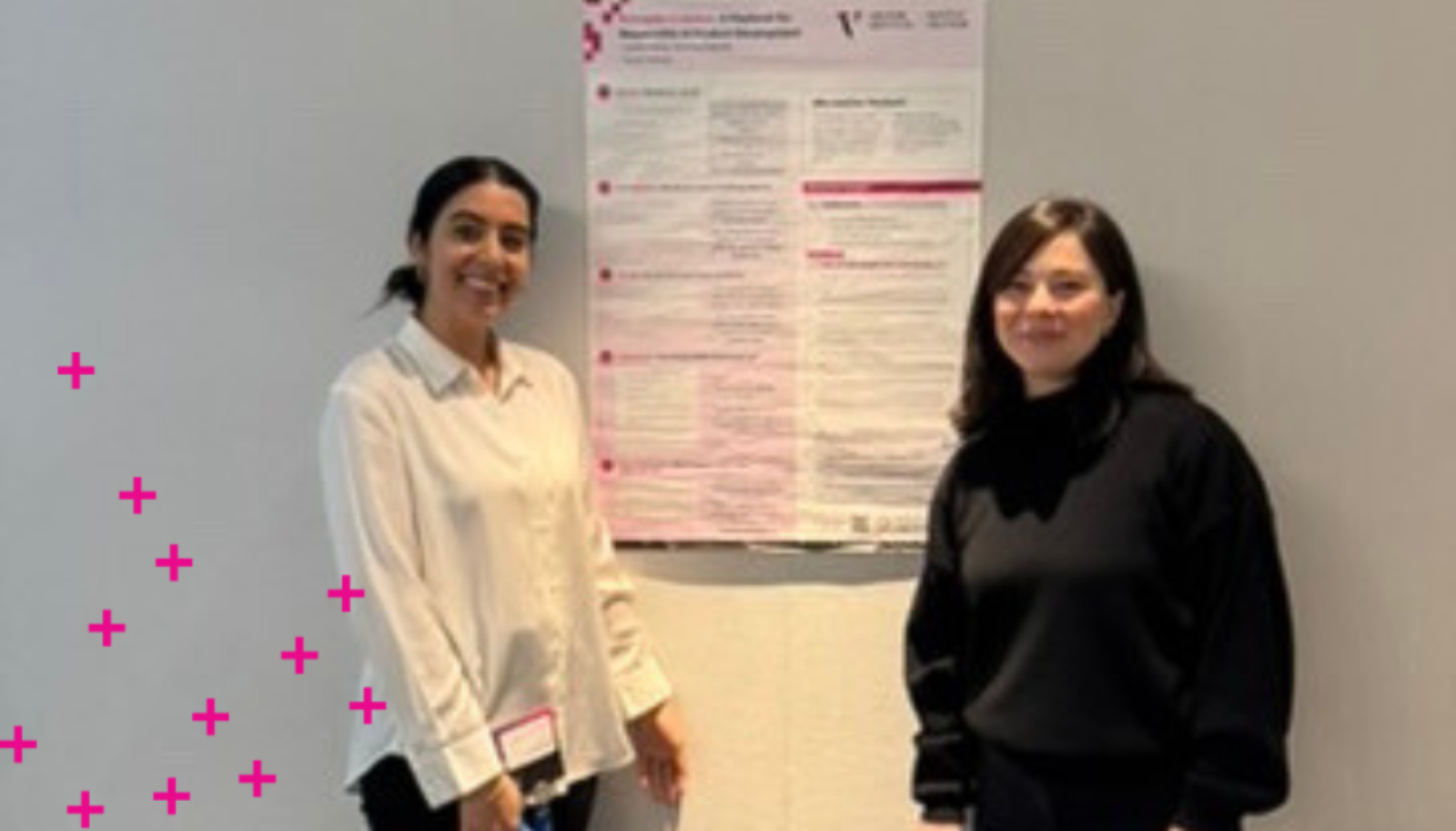Self-driving trucks will be on the road next year says Vector co-founder Raquel Urtasun at Collision 2024
June 19, 2024
June 19, 2024
By Natalie Richard
Self-driving trucks could be a reality on our roads as soon as next year, says Vector Institute Co-Founder and Faculty Member Raquel Urtasun. Speaking during her centre stage talk at the Collision Conference on Tuesday, Urtasun, who founded the autonomous vehicle startup Waabi three years ago, also announced that the company had raised $200 million in Series B funding to make this prediction a reality. Later that same day, Ontario’s Minister of Economic Development, Job Creation and Trade, Victor Fedeli, emphasized the critical role of the Ontario government in fostering that innovation that allows businesses like Waabi to thrive.

Vector co-founder Raquel Urtasun speaking at the Collision Conference centre-stage
Since the launch of ChatGPT, people have used generative AI to elevate text, video, and image generation, but Urtasun encouraged the Collision audience to think beyond our screens. To Urtasun, generative AI’s next frontier is the real world.
That will require a new way of thinking. For Urtasun, key points include: the ability to generalize across many scenarios, computational efficiency to enable edge computing, and safety. Currently, she says, “simulation systems are used, but they are only testing part of the system or the conditions are controlled. So this is where the power of generative AI can help us build a simulator that is the same as reality.”
To show this, Urtasun introduced the Collision audience to a groundbreaking closed-loop simulator called Waabi World that uses generative AI to create super-realistic simulated environments that are indistinguishable from the real world. Waabi World mimics the entire perception-to-action pipeline of a self-driving system, from sensor data to the autonomy system’s decision-making and the resulting consequences.
With the ability to generate numerous scenarios, Waabi can fully test the safety of their AI driver in a controlled virtual environment before real-world deployment. “This is very different than anything else and is a revolution on how to train self-driving,” said Urtasun. She explained that the simulator’s technology puts Waabi way ahead of the pack as they’re able to train and validate self-driving AI in a safe, efficient, and scalable manner.

“We have the horsepower to keep bringing these new companies in because we’ve got the talent.”
Victor Fedeli
Minister of Economic Development, Job Creation, and Trade
Investments in Canadian companies like Waabi is one of the ways Minister of Economic Development, Job Creation and Trade, Victor Fedeli, says Ontario has become a global powerhouse in technology and AI.
In a conversation with Matthew Kaminski, Editor at Large of POLITICO, Fedeli highlighted Ontario’s strengths in the technology sector, particularly in AI. He emphasized the importance of ongoing investment in AI research and development at Ontario’s universities, which he called “the cradle of AI.” By ensuring Ontario remains a powerhouse for AI research, Fedeli projected that more and more companies would continue to come and invest in Ontario, eager to capitalize on the AI talent and innovations that form the backbone of Ontario’s AI ecosystem. “We have the horsepower to keep bringing these new companies in because we’ve got the talent,” he said. That focus on homegrown talent helps to maintain Ontario’s competitive edge.
To further emphasize this, Fedeli listed multiple investments the province has recently made — including $27 million for Vector to drive innovation, foster AI talent, and propel economic growth — that are the key ingredients to a thriving AI ecosystem and bustling economy here in Ontario.
The combination of AI innovators like Urtasun and strategic government investments have created a thriving AI ecosystem that makes Ontario a global AI leader.
Learn how the Vector Institute is driving safe AI development and deployment


